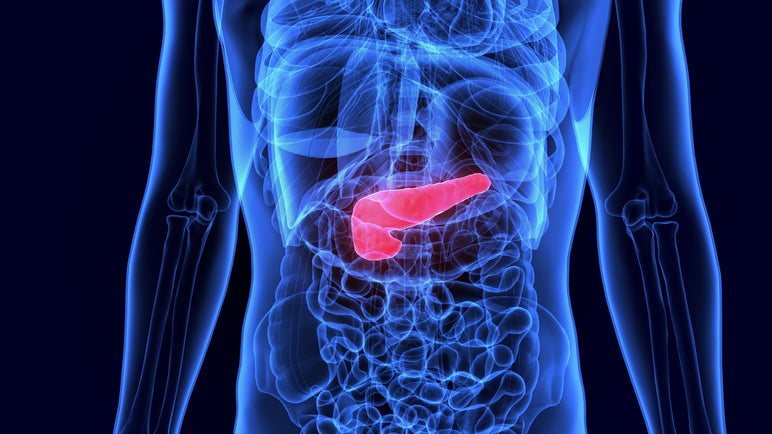In January 2017, a review of clinical trials reported that intake of certain nutraceuticals - such as Hawthorn, coenzyme Q10, L-carnitine, D-ribose, carnosine, vitamin D, some probiotics, Omega-3 fatty acids, and beet nitrates - may be associated with improvements in functional parameters of heart failure. Improvements in ejection fraction, stroke volume and cardiac output were all observed, with minimal side effects. (1) While most of the nutrients on this list are familiar to integrative and functional medicine practitioners, Hawthorn may be less so, and worthy of an introduction.
Hawthorn (Crataegus species) has been used for centuries in Chinese, European and Native American traditions as a food and cardiotonic herb, especially valued for treating heart conditions associated with aging. Hawthorn is a member of the rose family, a deciduous tree known for its thorny branches in the winter, delicate yet pungent blossoms in the spring, and brilliant red berries in late summer. There are hundreds of different species of Crataegus throughout the world, but the two most commonly used for medicinal purposes in Western herbalism are Crataegus oxyacantha (now known as Crataegus laevigata) and Crataegus monogyna.
The berries, flowers and leaves of the Hawthorn are all used medicinally and appear to have similar properties. Hawthorn berries are rich in oligomeric proanthocyanidins (OPC's), which have also been isolated in the leaves and flowers of the plant (2) along with flavonoids hyperoside, rutin, quercetin, vitexin, epicatechin and others. (3) Extracts are typically standardized to contain either 1.8 to 2.2 percent flavonoids, or 18.75 percent OPCs. The daily dosage as reflected in the literature ranges from 160 to 1,800 mg per day in divided doses.
Almost all clinical studies have been conducted with standardized extracts from Hawthorn leaves and flowers. Trials of more than 4000 patients have provided evidence for clinical benefits in the therapy of mild chronic heart failure. In addition to cardiotonic and mild hypotensive effects, recent studies suggest that hawthorn extracts also have cardio- and vasoprotective properties and may play a role in the prevention and treatment of conditions such as endothelial dysfunction, atherosclerosis and coronary heart disease. (4)
Chronic Congestive Heart Failure
Results of two meta-analyses, including a 2008 Cochrane review, found that when used as an adjunct to conventional treatment in patients with chronic CHF (New York Heart Association classes I through III), standardized leaf and flower extracts of Hawthorn substantially increased maximal workload tolerance, increased exercise tolerance, and improved symptoms of fatigue and shortness of breath as compared with placebo. (5, 6) The duration of these randomized controlled trials ranged from three to 16 weeks. Authors of the Cochrane review concluded that the results suggest a marked benefit in symptom control and physiologic outcomes when Hawthorn extract is used as an adjunctive treatment for chronic CHF. (5)
Hypertension
At least one randomized controlled trial has demonstrated a hypotensive effect on diastolic blood pressure only, in patients with diabetes taking prescribed medication. (7)
Another double-blind, placebo-controlled clinical trial of 92 men and women with primary mild hypertension, aged 40-60 years old, showed a significant decrease in both systolic and diastolic BP after three months of a Crataegus extract three times daily. (8)
Hyperlipidemia, Lipid Oxidation and Atherosclerosis
In animal studies of rats fed a hyperlipidemic diet, Hawthorn extract prevented elevation of plasma lipids, including total cholesterol, triglycerides, LDL and VLDL. (9) Hawthorn also prevented accumulation of cholesterol in the rat liver by enhancing cholesterol degradation to bile acids, promoting bile flow, and suppressing cholesterol synthesis. (10) A recent study found six different compounds in Hawthorn leaf extract, which demonstrated some bioactivity in treating rat fatty liver. (11)
Studies suggest that the polyphenols in Hawthorn may be able to inhibit LDL oxidation, a primary event in atherosclerosis plaque formation. (12)
Adhesion molecules also play an important role in the development and progression of coronary atherosclerosis. In a 2015 clinical trial of eighty stable angina patients aged 45 to 65 years, twelve weeks of aerobic exercise combined with Hawthorn extract reduced serum levels of two different adhesion molecules. Researchers concluded that the combination of Hawthorn and exercise was an effective complementary strategy to lower the risk of atherosclerosis and heart problems. (13)
However, not all studies have found the same benefits. In the Hawthorn Extract Randomized Blinded Chronic Heart Failure (HERB-CHF) trial sponsored by the National Center for Complementary and Alternative Medicine, a standardized Hawthorn extract given for six months had no apparent effect on six-minute-walk distance. (14) Another long-term placebo-controlled study, Survival and Prognosis: Investigation of Crataegus Extract WS 1442 in CHF (SPICE), suggested that Hawthorn extract WS 1442 may protect against cardiac death and sudden death, at least in patients with less compromised left ventricular function, but did not show a statistically significant benefit when given along with standard drug therapy to more than 2,600 patients with NYHA class II or III heart failure. (15)
Safety
Hawthorn is generally well-tolerated. Mild side effects including vertigo and dizziness, gastrointestinal complaints, headaches, and heart palpitations, have occasionally been reported.
Use of Hawthorn extracts with medications such as digitalis, anti-hypertensive drugs, and lipid-lowering agents should always be monitored by a physician, as they may have potentiating effects.
Caution is warranted in patients undergoing surgery, as taking Hawthorn extract may increase the potential for bleeding after cardiac surgery. (16)
Hawthorn is contraindicated in pregnancy due to potential for uterine stimulation.
DISCLAIMER: The information contained in this article is for informational purposes only, and is not intended to be a substitute for professional medical advice, diagnosis, or treatment. Always seek the advice of your physician or other qualified health provider with any questions you may have regarding a medical condition.
References
1. https://www.ncbi.nlm.nih.gov/pubmed/28120718
2. https://www.ncbi.nlm.nih.gov/pubmed/25917901
3. https://www.ncbi.nlm.nih.gov/pubmed/22608128
4. https://www.ncbi.nlm.nih.gov/pubmed/21384315
5. https://www.ncbi.nlm.nih.gov/pubmed/18254076
6. https://www.ncbi.nlm.nih.gov/pubmed/12798455
7. https://www.ncbi.nlm.nih.gov/pubmed/16762125
8. https://www.ncbi.nlm.nih.gov/pubmed/15700749
9. https://www.ncbi.nlm.nih.gov/pubmed/7927437
10. https://www.ncbi.nlm.nih.gov/pubmed/8782854
11. https://www.ncbi.nlm.nih.gov/pubmed/24254959
12. https://www.ncbi.nlm.nih.gov/pubmed/12967038
13. https://www.ncbi.nlm.nih.gov/pubmed/26687477
14. https://www.ncbi.nlm.nih.gov/pmc/articles/PMC2754502/






